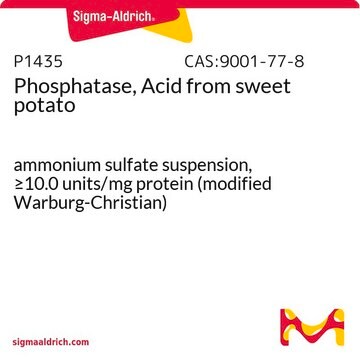S1429
Sodium acetate
meets USP testing specifications, anhydrous
Synonym(s):
Acetic acid sodium salt
About This Item
Recommended Products
grade
anhydrous
Quality Level
agency
USP/NF
meets USP testing specifications
assay
99-101% dry basis
form
solid
autoignition temp.
1112 °F
pH
8.5-9.9 (25 °C, 246 g/L)
pKa
4.76 (acetic acid)
mp
>300 °C (dec.) (lit.)
solubility
soluble 246 g/L at 20 °C (completely)
application(s)
pharmaceutical (small molecule)
SMILES string
[Na+].CC([O-])=O
InChI
1S/C2H4O2.Na/c1-2(3)4;/h1H3,(H,3,4);/q;+1/p-1
InChI key
VMHLLURERBWHNL-UHFFFAOYSA-M
Looking for similar products? Visit Product Comparison Guide
Related Categories
General description
Application
Storage Class
11 - Combustible Solids
wgk_germany
WGK 1
flash_point_f
Not applicable
flash_point_c
Not applicable
ppe
Eyeshields, Gloves, type N95 (US)
Choose from one of the most recent versions:
Certificates of Analysis (COA)
Don't see the Right Version?
If you require a particular version, you can look up a specific certificate by the Lot or Batch number.
Already Own This Product?
Find documentation for the products that you have recently purchased in the Document Library.
Customers Also Viewed
Our team of scientists has experience in all areas of research including Life Science, Material Science, Chemical Synthesis, Chromatography, Analytical and many others.
Contact Technical Service





